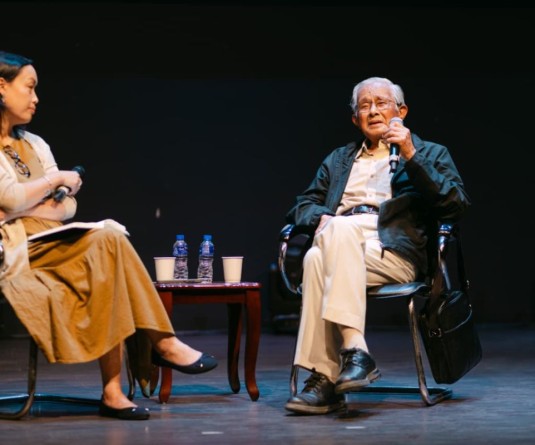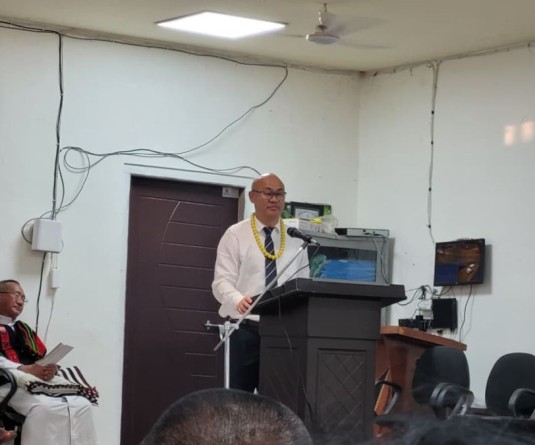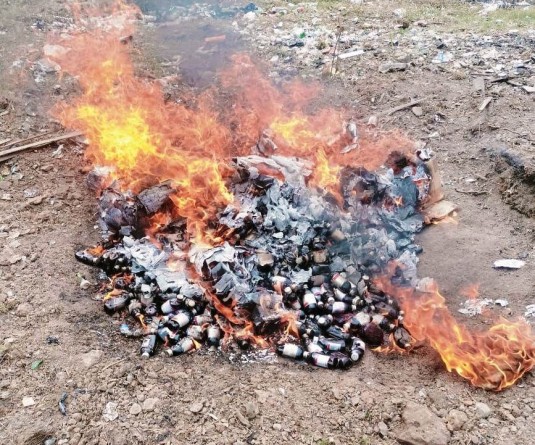
Emilo Khuvung
Kohima | October 10
Things have not been the same for Yanpha village, a Kyong village bordering Assam, since the 1972 Sundaram Report. Yanpha villagers continue to live in suppression by the Central Reserve Police Force (CRPF). It is reported that villagers are not allowed to even set up toilets let alone roads or construct proper buildings because the Indian police force at Yanpha prohibits such. The villagers are also disallowed from collecting forest products and firewood – but illegal immigrants at the border are allowed to. Illegal immigrants can do business or collect forest products and freely move and trade but the Kyong villagers are strictly censured against even farming livestock by the CRPF.
With a population of around 1000, Yanpha – under Wokha district – borders Karbi Anglong, Golaghat and Jorhat districts of Assam. The village was established in 1938. It is said that the village was abandoned during the Second World War to facilitate the movement of British troops. After the war, in recognition of the help and cooperation by the villagers, the British reestablished the village in the ancestral domain of the Kyong Nagas.
Accordingly on 12th April 1964, Shanchomo, the Gaonbora of Ralan village was permitted to reestablish the village. NL Kinghen, who was the then Assistant Commissioner to the Government of Nagaland, Wokha, set the foundation stone in the heart of the village.
The nearest Police station is half an hour away from the village (Nuiland Police station). However, as the village falls under Wokha district and under the jurisdiction of Ralan SDO (sub-divisional officer), Yanpha comes under the Bhandari Police Station which is two hours away from the village.
Today, under the Central Reserve Police Force, Yanpha villagers are denied many economic and social rights after the deployment of the central Para-military force.
According to the Head Dobashi under Ralan SDO (civil) office, the villagers are not allowed to build houses even after permits from the Border Magistrate or construct even proper toilets and approach roads under the NREGS. Likewise, the villagers are not allowed to collect firewood under the pretext of the forest being “reserved” while illegal migrants are allowed to collect firewood any time of the year. (The forests belonging to the villagers have been used by the villagers for sustenance and have never been officially declared as ‘reserved.’ Under Article 371A of the Constitution of India, land and its resources is said to belong to the people).
Villagers are also prevented from setting up any signboards in the village. If any signpost is erected, the CRPF removes it.
There were also issues being reported about the kidnapping of a migrant laborer from around the village. The non-local migrants lodged a complaint with the CRPF posted at Yanpha. Without any preliminary investigation and on mere suspicion, the CRPF arrested an 11 years old school boy from Yanpha and confined him. The boy was used as a bait to compel the ‘armed miscreants’ to release the migrant labor. Interestingly, the immigrant laborer did not even possess an Indian citizenship certificate!
A women group when objected to this illegal and inhuman act of retaining a minor in the CRPF camp and demanded for his release resulted in a clash. Many women were reportedly beaten up and injured by the CRPF personnel.
Anybody found rearing domestic animals and poultry are harassed and fined by the CRPF. It is also learned that villagers are not allowed to set up shops or do any business through which they can sustain themselves. But illegal migrants are allowed to do so by the CRPF, indicating the clear violation of the villager’s right to economic security and development.
The poor villagers have to share half their firewood or food items with the CRPF to get things through. The testimony of the villagers sets clear example of double-standards and deep prejudice of the CRPF. Illegal immigrants are given free permit to built houses, put up signboards or ensure free movement of vehicles carrying firewood or any tradable goods.
Yanpha seeks Rio Govt’s help
It is also learned that the villagers’ submitted a representation to the Nagaland state government in the month of April and are awaiting response. In the representation the villagers have demanded removal of the CRPF post from the village as the force already has three posts at one kilometer each from the Yanpha post; demanded access to forest and use of other natural resources to fulfill the basic needs of the villagers; permits to rear domestic animals and poultry (currently forbidden by the CRPF); right to build new houses for newly married couples as per traditional customs; right to housing as instituted under the Constitution of India; right to life – that the CRPF refrain from endangering the life of public; restrict the CRPF jawans from urinating in public places and respecting the dignity of the villagers.
It is imperative on the part of the Government of Nagaland to rein in the arbitrary actions of the prejudiced CRPF posted at Yanpha village. For some reasons, the CRPF is often claimed to be a so-called “neutral force.”
(This story is based on research conducted by the DICE Foundation and filed as per the research report.)






